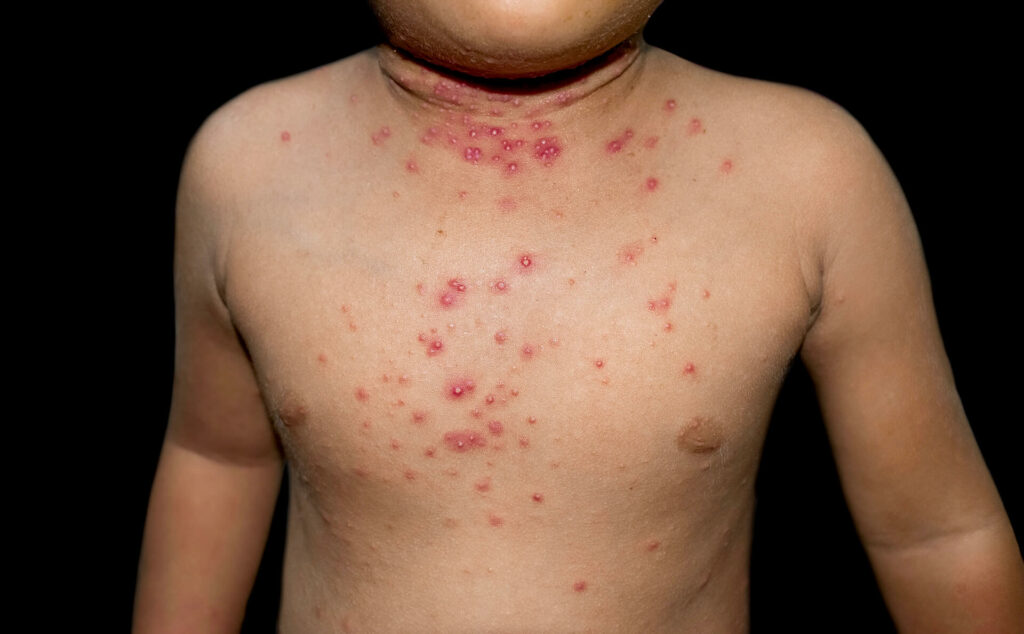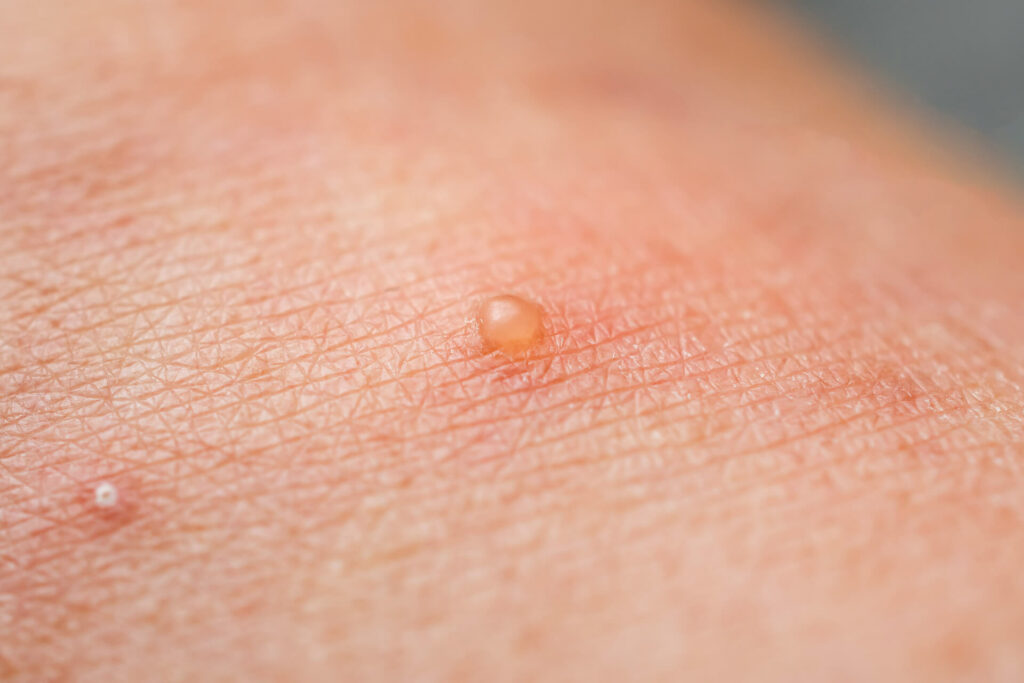Molluscum Contagiosum in Omaha
Molluscum Contagiosum Treatment for Kids and AdultsWhat is Molluscum Contagiosum?
Molluscum contagiosum is a common skin infection that affects mostly young patients and children, although it can occur in people of any age, especially those with weakened immune systems. This skin infection manifests in the form of “papules,” or small, raised bumps that can range in size from a pinhead to a pencil eraser. These can be unsettling for a parent to find on their child, but the friendly primary care providers at Nebraska Home Pediatrics & Parents are more than prepared to help with diagnosis and treatment of this infection.
Symptoms of Molluscum Contagiosum
Molluscum contagiosum symptoms typically present in a consistent manner, and your provider should be able to diagnose them quickly with an in-person visit. The most common symptoms include:
- Bumps (papules) on the skin that are round, skin-colored or pink, and raised
- Small bumps that appear in a row due to scratching
- A small “dent” at the top/center of the papule
- Pink bumps that are itchy
- Papules found on the arms and legs, trunks, or faces of children
- Dermatitis around the papules; dry, itchy skin
Molluscum contagiosum thrives in parts of the body that are warm and moist, specifically in the groin area, behind the knees, and in armpits. The infection can present with only a few bumps, or up to hundreds.

Speak to a medical provider today about your molluscum contagiosum symptoms.
If you suspect that your child has molluscum contagiosum, it’s important to have them seen by a medical provider in order to improve symptoms, relieve discomfort, and prevent further spread. Please give us a call at our Omaha office to set up an appointment that fits your needs!
Causes
The molluscum contagiosum virus is a “poxvirus,” and has an incubation period that ranges from 2 weeks to 6 months. Some of the most common causes include:
- Skin-to-skin contact between a person who is infected and someone who is not
- Indirect contact via infected objects, especially in damp areas like swimming pools and gym settings
- Swimming in small, contained bodies of water (like hot tubs or pools) that are contaminated with the virus
- “Autoinoculation” which occurs by scratching or irritating the bumps, spreading the virus to other parts of the skin
- In older patients, molluscum contagiosum can be spread via sexual contact

Our Process
When you contact Nebraska Home Pediatrics & Parents about your child’s molluscum contagiosum symptoms, we’ll work to quickly get you an appointment and diagnosis.
Nebraska Home Pediatrics & Parents is proud to offer the first FDA-approved treatment for molluscum contagiosum, called YCANTH. In order to receive this treatment, an evaluation appointment is necessary to officially diagnose the molluscum contagiosum.
Because YCANTH is a new medication on the market, our office will need to start a prior authorization with the patient’s insurance company to get approval. Through a rebate system, most patients with private insurance pay no more than $25 for the medication.
Once we get approval, we will set up a second appointment for the actual treatment. Each treatment includes a charge for (1) office visit, (1) procedure, and (1) medication (YCANTH) dosage.
The prior authorization is good for 4 treatments. If the child needs additional treatments, our office would need to do a second prior authorization. Most patients won’t need more than 4 treatments, but this will vary from case to case. Call the clinic for the most up-to-date pricing.
Contact us at our Omaha clinic and our friendly staff will get you in as soon as possible for an evaluation, and any molluscum contagiosum treatment our providers think is necessary.
Prevention
If you are concerned about you or your child contracting molluscum contagiosum, there are a few things you can do toward prevention, including:
- Wash your hands. Like any other virus this is one of the best methods of preventing spread and contraction.
- Don’t share personal items like hair brushes, towels, and clothing that hasn’t been recently laundered all carry risk.
If you or your child already have molluscum contagiosum, you can help prevent it from spreading by:
- Avoiding touching the bumps in any way, especially via scratching.
- Wearing clothing that keeps the bumps covered when you are around others.
- Covering bumps with watertight bandages if you are swimming
